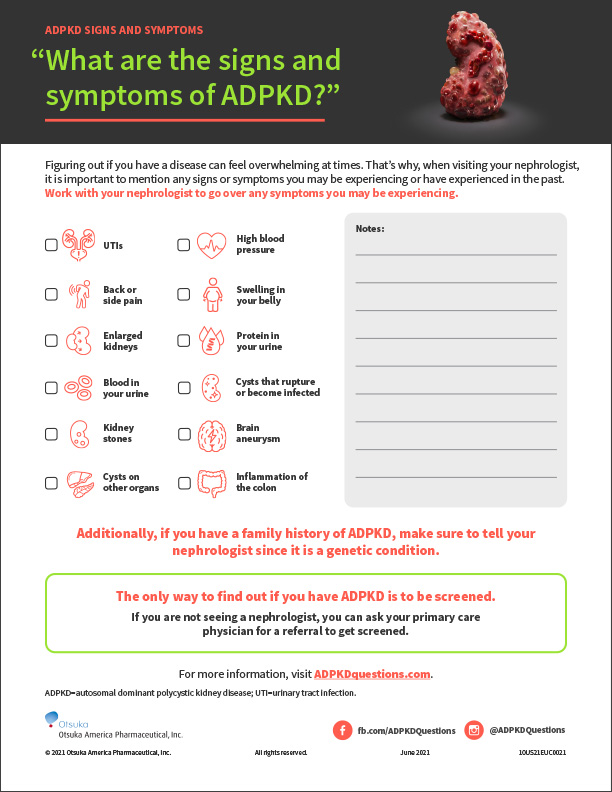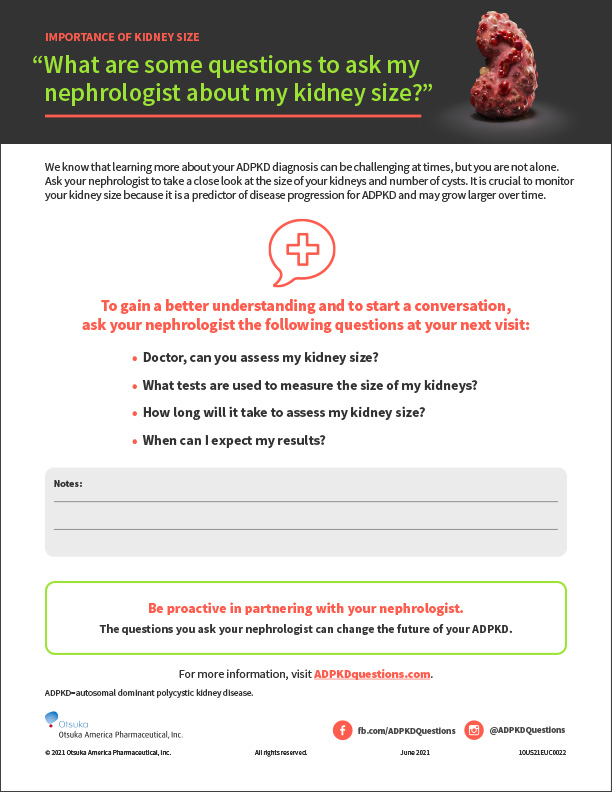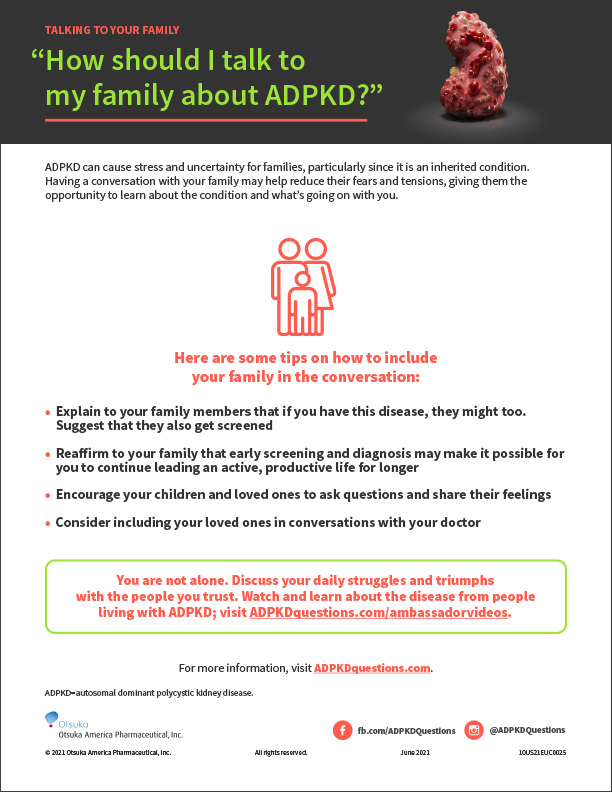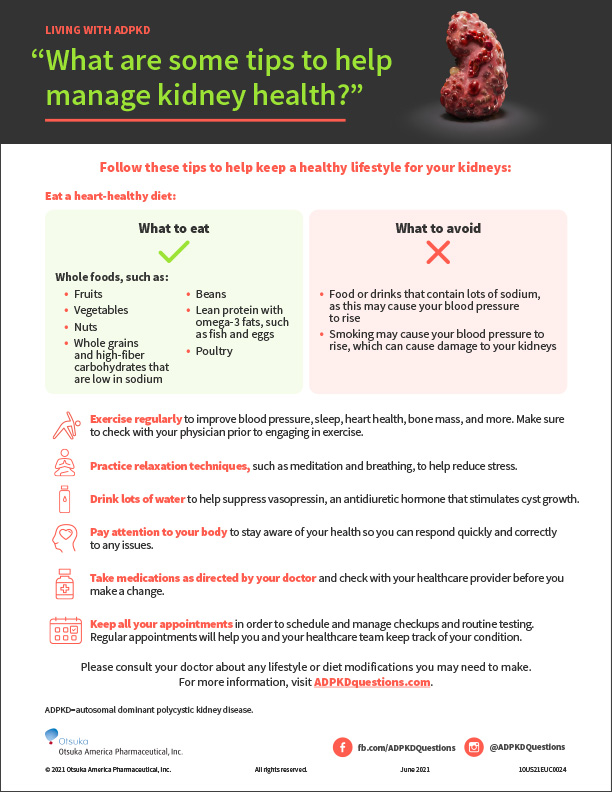New Jersey
A Critical Question to Ask your Doctor: ADPKD Questions Campaign Highlights the Importance of Kidney Size for ADPKD Patients
PRINCETON, N.J., Sept. 23, 2021 /PRNewswire/ -- "Doctor, can you assess my kidney size?"
Experience the interactive Multichannel News Release here: https://www.multivu.com/players/English/8949851-adpkd-questions-campaign-highlights-importance-of-kidney-size-for-patients/

For a patient living with Autosomal Dominant Polycystic Kidney Disease (ADPKD), this one question can change the future of their disease.
ADPKD is an inherited disease that affects an estimated 140,000 Americans. While ADPKD is rare, it is the most common inherited renal disease/kidney disorder as well as the fourth leading overall cause of end stage renal disease (ESRD). As a progressive condition, ADPKD may eventually lead to kidney failure requiring some form of renal replacement therapy, such as either dialysis or kidney transplant.
ADPKD is all too common for families impacted by the condition. In fact, children of parents with ADPKD have a 50 percent chance of inheriting the disease. However, sometimes those with a family history of ADPKD may not proactively discuss it with their doctor. For those who do and receive a diagnosis of ADPKD, some individuals opt to delay treatment since they feel their ADPKD will progress at a slow and steady rate over time, are unaware of the relationship between kidney size and ADPKD progression or are not aware that they may be at risk of fast progression.
It is important for those living with this disease to routinely see a nephrologist. Using the latest technologies, nephrologists can now identify ADPKD patients who are at risk for rapid progression of kidney function decline as well as estimate how quickly someone with ADPKD is likely to progress based on the size of his or her kidneys. It is important that patients who are in the early stages of their ADPKD journey understand the disease and adopt disease management strategies in order to help protect kidney function, as well as manage any related complications such as high blood pressure, urinary tract infections, kidney stones, infected or bleeding cysts, abdominal bloating/discomfort and chronic pain.
"Navigating a rare disease like ADPKD can be difficult, patients have told us there is a need to better understand ADPKD and available disease management strategies," said Louis Allesandrine, vice president, head of nephrology and medical devices at Otsuka Pharmaceutical Companies. "Our ADPKD Questions campaign was created to empower patients to have informed conversations about ADPKD with their Nephrologist and Primary Care Physicians, including discussing the importance of knowing their kidney size so they can properly manage their condition."
Monitoring kidney function through estimated glomerular filtration rate (eGFR) is also an important part of managing ADPKD, though it alone is not enough to predict disease progression. With eGFR, doctors can measure how well kidneys are filtering the blood to show how well they are working. However, it may not show if kidneys are getting bigger, if cysts are growing and if the patient's ADPKD is getting worse over time which is why assessing kidney size is critical.
Although disease progression can be unpredictable, even among family members, it's important to confirm diagnosis early on as patients with fast progressing ADPKD reach ESRD at a younger age. Individuals with ADPKD should speak with their health care provider about taking a closer look at the size of their kidneys and number of cysts. It is crucial to monitor kidney size because it can reveal if a patient is at risk of complications, and also help their nephrologist manage the condition. With one simple question "Doctor, can you assess my kidney size?" patients can begin disease management in the early stages.





![]() View original content:https://www.prnewswire.com/news-releases/a-critical-question-to-ask-your-doctor-adpkd-questions-campaign-highlights-the-importance-of-kidney-size-for-adpkd-patients-301383853.html
View original content:https://www.prnewswire.com/news-releases/a-critical-question-to-ask-your-doctor-adpkd-questions-campaign-highlights-the-importance-of-kidney-size-for-adpkd-patients-301383853.html
SOURCE Otsuka America Pharmaceutical, Inc.
